Eight Republican 2024 hopefuls have qualified to take the debate stage in Milwaukee on Wednesday, and a few others fell short while some still claim to have met the criteria laid out by the Republican National Committee.
The RNC released a final list of which candidates qualify for the GOP’s first primary debate late Monday evening. To participate, GOP candidates must meet a number of criteria as given by the organization.
Presidential contenders must poll at 1% in three qualifying national polls or two national polls and one qualifying early-state poll. They need to have received funds from a minimum of 40,000 unique donors, with 200 unique donors in 20 or more states. The RNC will also require all candidates to pledge to support the eventual Republican presidential nominee, a new rule that not everyone is on board with.
Here is a look at who is in Wednesday night’s Republican debate.
Donald Trump
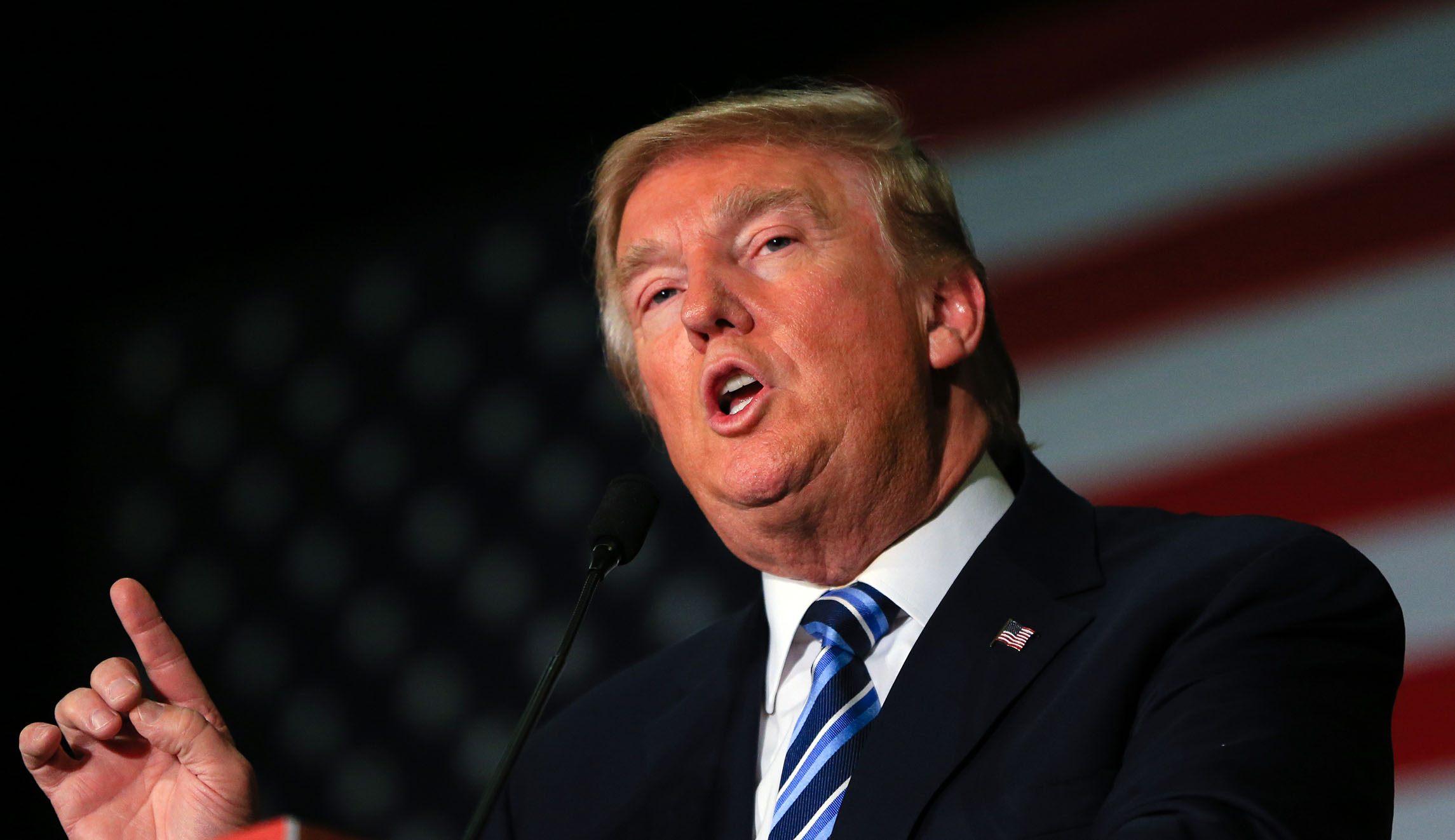
Former President Donald Trump met the criteria to qualify for the debate; however, on Sunday, he announced he would skip the Republican primary debates, citing a CBS News poll that gives him his biggest lead among his GOP candidates to date.
“The public knows who I am & what a successful Presidency I had, with Energy Independence, Strong Borders & Military, Biggest EVER Tax & Regulation Cuts, No Inflation, Strongest Economy in History, & much more,” Trump posted on Truth Social. “I WILL THEREFORE NOT BE DOING THE DEBATES!”
Trump confirmed on his Truth Social platform on Wednesday morning that a pretaped interview with former Fox News host Tucker Carlson would air at the same time as the RNC debate.
Special counsel Jack Smith charged Trump on Aug. 1 for allegedly attempting to overturn the results of the 2020. In early 2022, the Justice Department began investigating Trump for retaining classified documents following his exit from the White House. Smith indicted Trump in June, and the former president pleaded not guilty. A Manhattan grand jury voted to indict Trump in March over falsifying business records and making an alleged hush money payment to adult film star Stormy Daniels.
Despite Trump’s growing list of legal troubles, as he was indicted for a fourth time this month on charges of allegedly attempting to overturn the results of the 2020 election in Georgia, he leads his party in the polls and with the most cash on hand, having $22.5 million per federal filings.
Ron DeSantis

Gov. Ron DeSantis (R-FL), who is widely viewed as Trump’s top rival, will attend the first debate amid recent campaign struggles, with some criticizing that he is not meeting the Republican Party’s high expectations.
After his active-duty service in the U.S. Navy, he has been a popular governor for passing a slew of conservative policies in the Sunshine State, including a six-week abortion ban, several restrictions on transgender issues such as blocking treatments for minors like hormone therapy and puberty blocker and cracking down on drag shows.
The DeSantis campaign confirmed the conservative governor had met the donor and polling threshold and has said he’d “respect the outcome” of the primaries.
DeSantis said he would participate regardless of whether Trump attends or not, telling Fox in early July, “I hope everybody who’s eligible comes. I think it’s an important part of the process, and I look forward to being able to be on the stage and introducing our candidacy and our vision and our leadership to a wide audience.”
Tim Scott

Sen. Tim Scott (R-SC) is running on his strong Christian faith and fighting the Democratic agenda as the Senate’s sole black Republican. He gained national attention by quickly moving up the political ladder, as he was elected to Congress in 2010 and was appointed to the Senate two years later.
Scott confirmed he met the benchmark to take the debate stage. Scott said he had the 40,000 donors and the 200 unique donor requirements in June while committing to follow the RNC loyalty pledge.
“All Republican candidates would be better than any Democrat candidate,” Scott said to Fox News.
Scott brought in more than $2 million in the 24 hours after starting his presidential run, already having $22 million from his Senate campaign prior to entering the race in May — the largest cash-on-hand figure of any candidate.
Nikki Haley
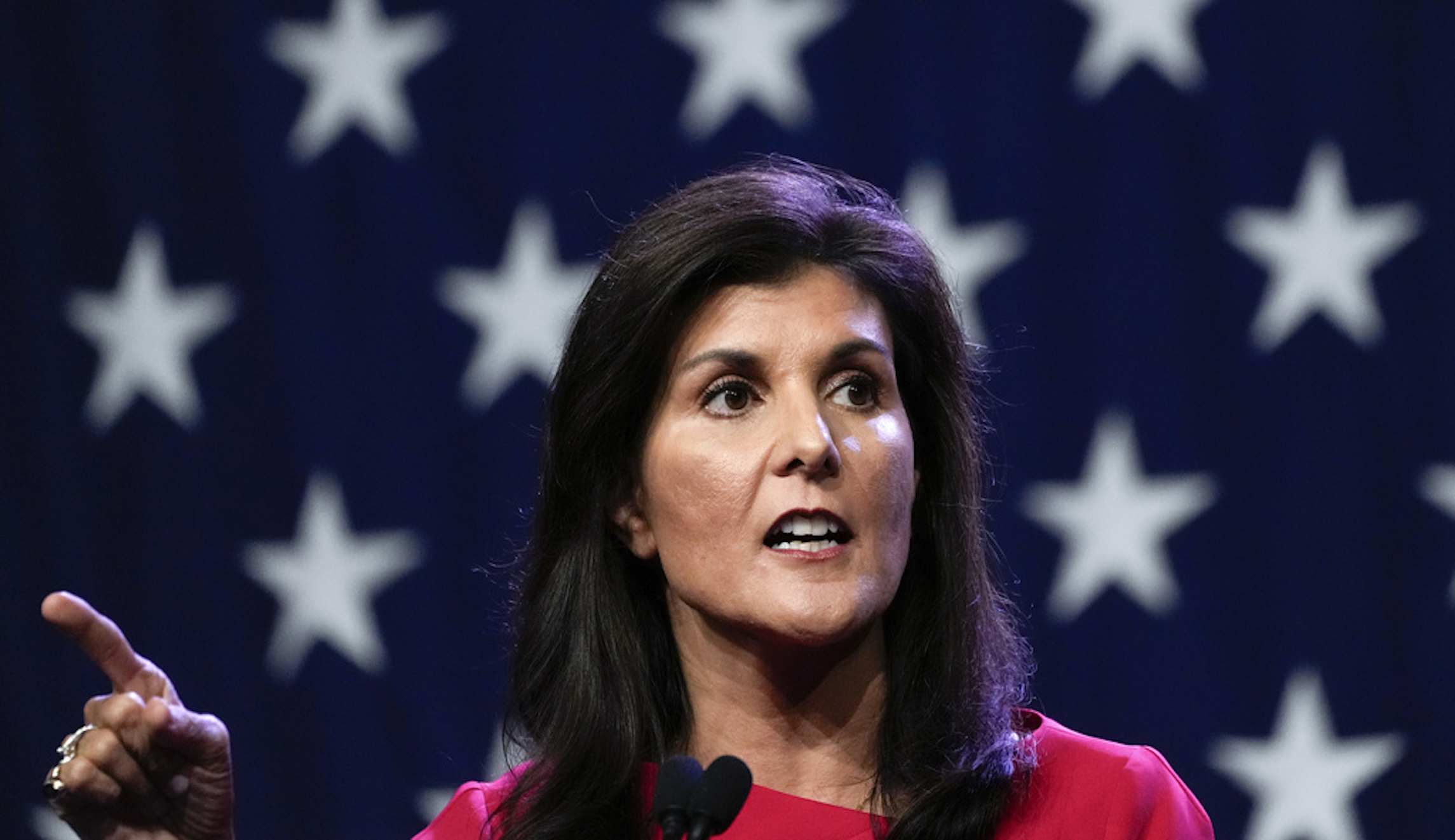
Former United Nations Ambassador Nikki Haley was the first major candidate to announce a run against Trump, launching her campaign in February. She will take the debate stage this month.
Haley, the daughter of Indian immigrants, rose to national prominence during her time as South Carolina’s governor, where she passed sweeping laws such as dropping Common Core education standards. She was selected by Trump to serve as an ambassador to the United Nations and was confirmed by the Senate in a large majority of 96 to 4 before resigning from her role in 2018.
The first woman to serve as governor of South Carolina has been polling in the low to mid-single digits, with the most recent New York Times/Siena poll having her at 3%.
Haley’s press secretary confirmed to the Washington Examiner several weeks ago that she met the donor threshold to qualify.
“Funding comes from 70,000 donations, including more than 67,000 donations from people who gave $200 or less,” a first-quarter press release states. “Haley received support from all 50 states. Her top three fundraising states were South Carolina, Florida, and Texas.”
Vivek Ramaswamy
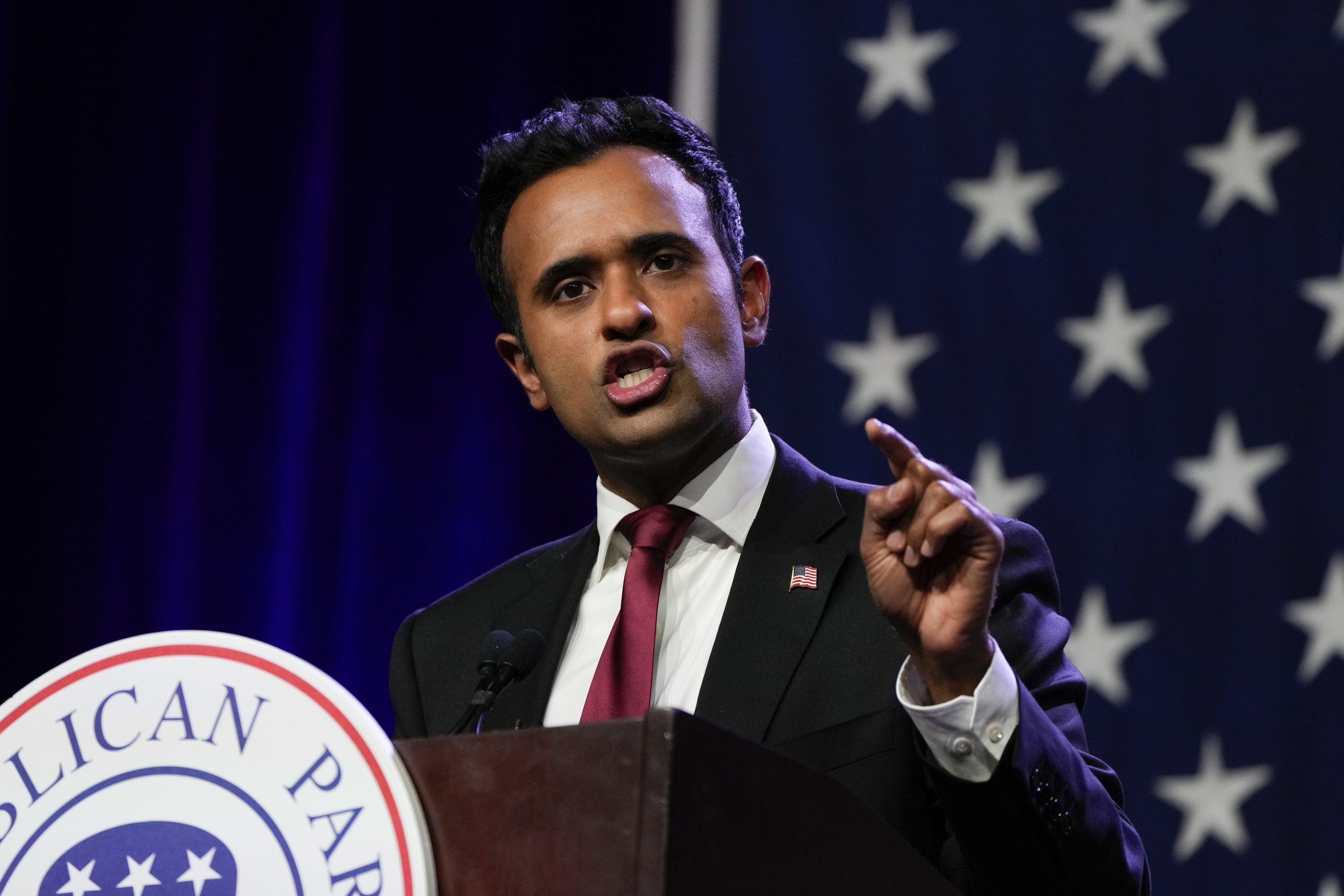
The political newcomer and biotech entrepreneur, Vivek Ramaswamy confirmed to the Washington Examiner he would qualify for the debate several weeks ago.
He made a name for himself in right-wing circles by opposing “woke” capitalism and is a self-described political nationalist.
Trump has praised the 37-year-old GOP contender in the past, while he often defends the former president amid his various legal cases.
Ramaswamy received political donations from more than 60,0000 individual donors and has been on the rise in polls recently, previously falling in the low single digits but reaching 10% in an Echelon Insights survey. Ramaswamy has had a rapid rise in the polls, increasing in recent months from the near bottom of the chain to third and second in some cases.
Chris Christie
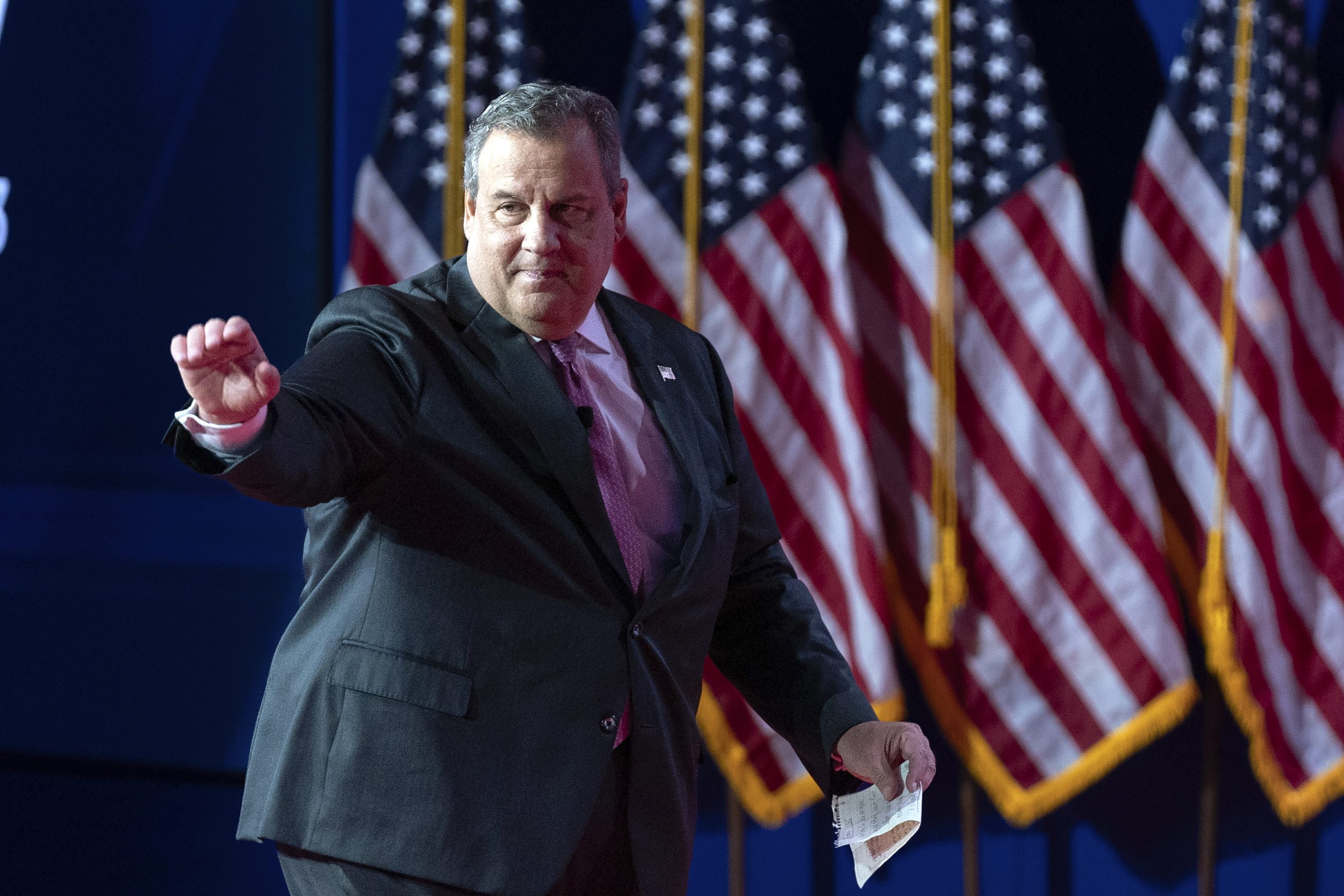
Former New Jersey Gov. Chris Christie entered the packed Republican presidential race later than most of his fellow candidates.
He became a household name in his role as a U.S. attorney, taking on cases of high-profile convictions, including Charles Kushner.
Christie endorsed Trump in the 2016 election and advised him in the race; however, he has since become one of the former president’s biggest critics, telling reporters the 2020 election lies were his breaking point.
He announced in July that he met the financial requirements to debate and told CNN he gained over 40,000 unique donors in just 35 days since the launch of his campaign at the start of June.
Christie initially criticized the loyalty pledge requirement but told Fox News he would sign it last week.
“The most important thing is to be on the stage so our voters get to make an informed choice about who can beat Joe Biden,” he said.
Doug Burgum
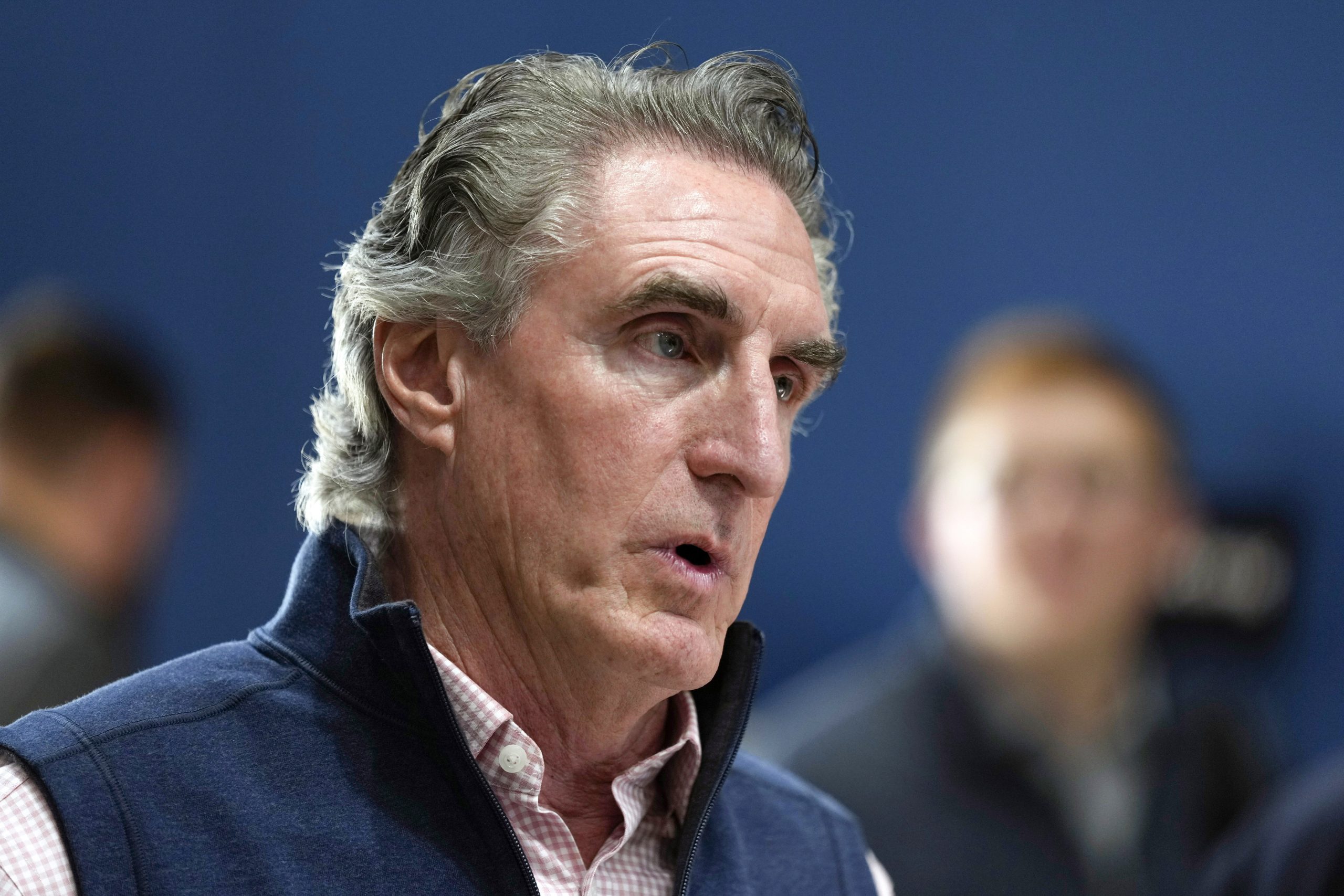
Gov. Doug Burgum (R-ND), the long-shot candidate who cast his presidential bid in June, announced in July he has met the criteria to debate after offering donors $20 gift cards for $1 donations.
He was victorious as an underdog in the past, winning the North Dakota gubernatorial race in 2016 against a prominent conservative attorney general by 20%. A July Fox Business poll found Burgum polling at 3% in Iowa.
Burgum once owned Great Plains Software, a company that eventually was bought by Microsoft for $1.1 billion in the 90s.
The long-shot candidate injured his leg in Milwaukee, Wisconsin, on Tuesday in a pickup basketball game with his staff. Burgum’s campaign reported the politician intends to attend the debate walk-through, but it remains unclear whether he’ll participate in the full two-hour event.
Mike Pence
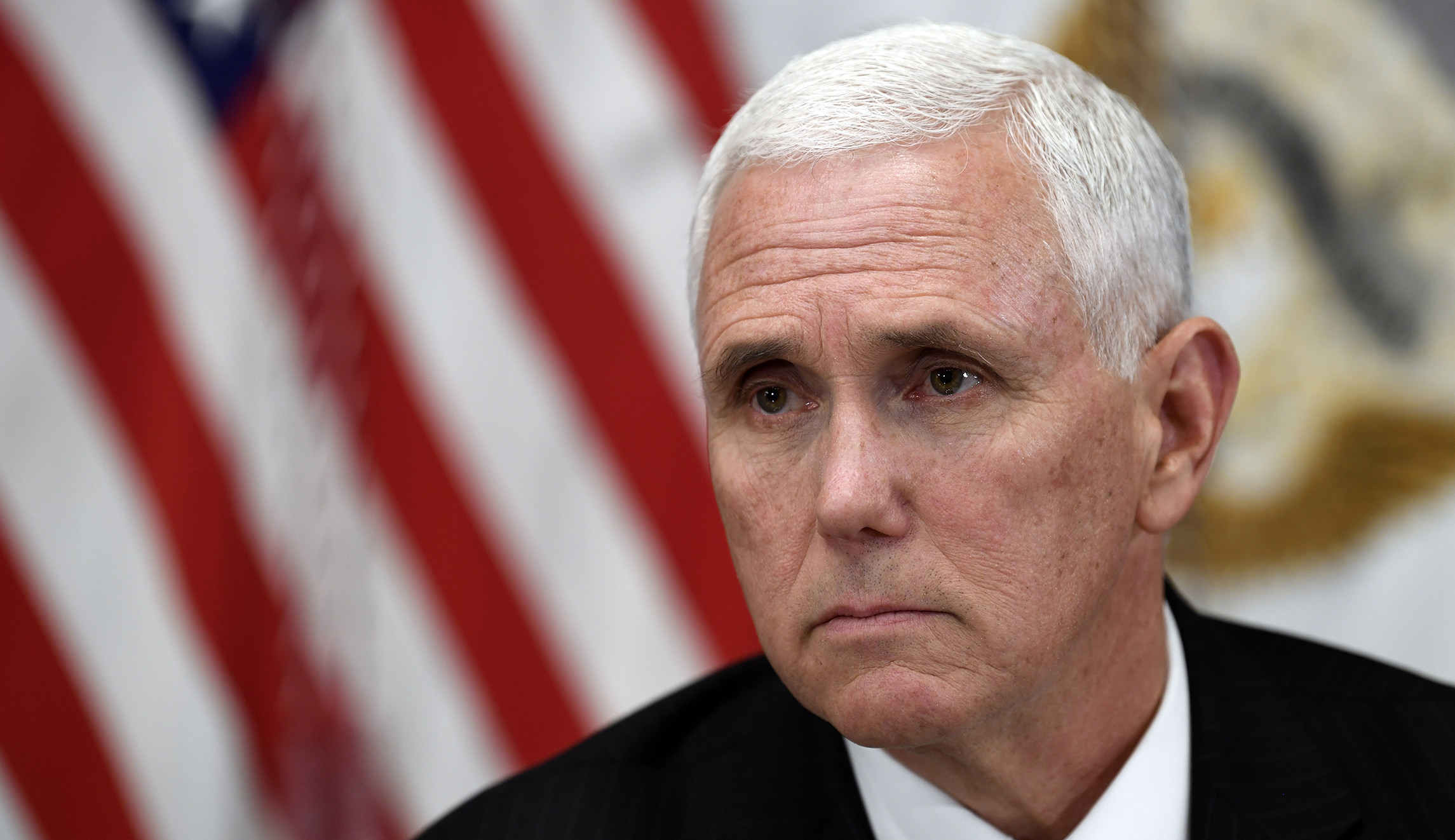
Former President Mike Pence launched his highly anticipated campaign in June while rebuking Trump. He announced on Aug. 7 that he hit the 40,000-donor threshold, obtaining contributions from at least 200 unique donors in 40 states, according to his campaign.
Pence served as the governor of Indiana before becoming Trump’s vice president and has since severed ties with his Republican competition, attacking Trump for asking him to delay the counting of electoral votes on Jan. 6, 2021, in an effort to subvert the 2020 election results.
“Mike Pence made quick and easy work of the donor threshold, and he’s looking forward to a substantive debate about the issues important to the American people,” Pence campaign spokesman Devin O’Malley said in a statement to Fox News.
Asa Hutchinson
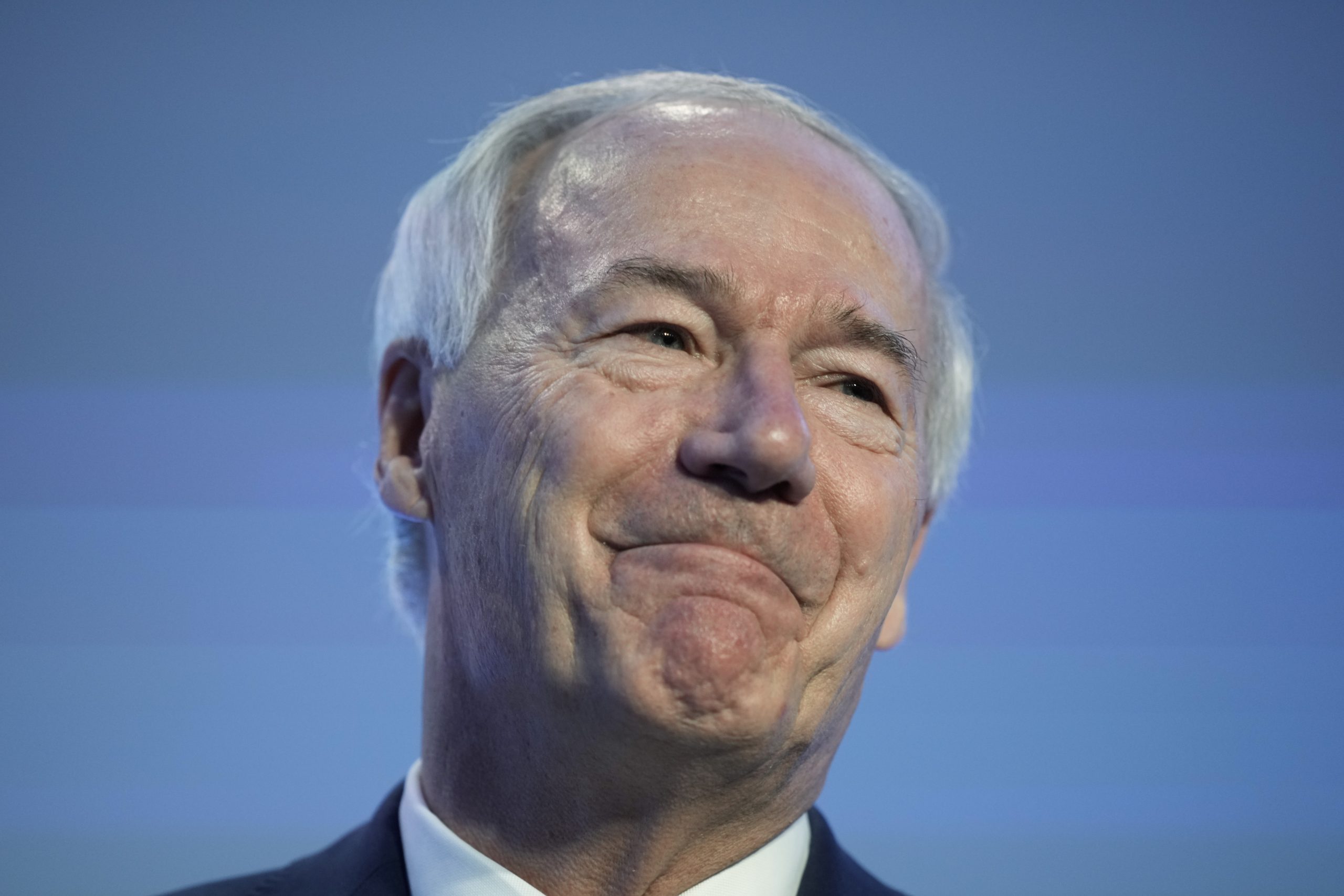
Former Arkansas Gov. Asa Hutchinson became the latest candidate to claim he has met the RNC’s thresholds on Sunday, telling CNN’s State of the Union that his campaign “met all the criteria that the RNC set to be on the debate stage.”
Hutchinson reached the polling limit out of the other qualifications first, saying he reached the donor threshold this week and has said he signed the debate pledge.
It is unclear if he has been verified by the RNC, however, as of Sunday, the RNC had yet to verify his donors and he had not signed the pledge though Hutchinson has said he would do so.
Hutchinson served as U.S. attorney for the Western District of Arkansas before being elected to the House of Representatives in 1996.
The following candidates did not meet the qualifications to debate, according to the RNC.
Will Hurd

The former Texas congressman Will Hurd has received fewer than 500 unique donors, according to the New York Times. Hurd launched his campaign in June, pitching himself as a moderate conservative. He was not on the list posted by the RNC to make the debate stage. Hurd said on X that he would not support Trump as the GOP nominee and attacked the RNC’s confusing guidelines.
“I have said from day one of my candidacy that I will not sign a blood oath to Donald Trump,” he said.
Larry Elder

Larry Elder, a conservative talk radio host who ran for governor of California in 2021, did not meet the polling or donor requirements after entering the presidential race in April. Similar to Hurd, he blamed the RNC’s lack of clarity on which polls to include.
“The lack of transparency and confusion around the RNC’s debate requirements is antithetical to the democratic process,” Elder said. “The polling standards are arbitrary, unclear, and lack consistency. This is an unacceptable process for a presidential election. The American people deserve better.”
Francis Suarez
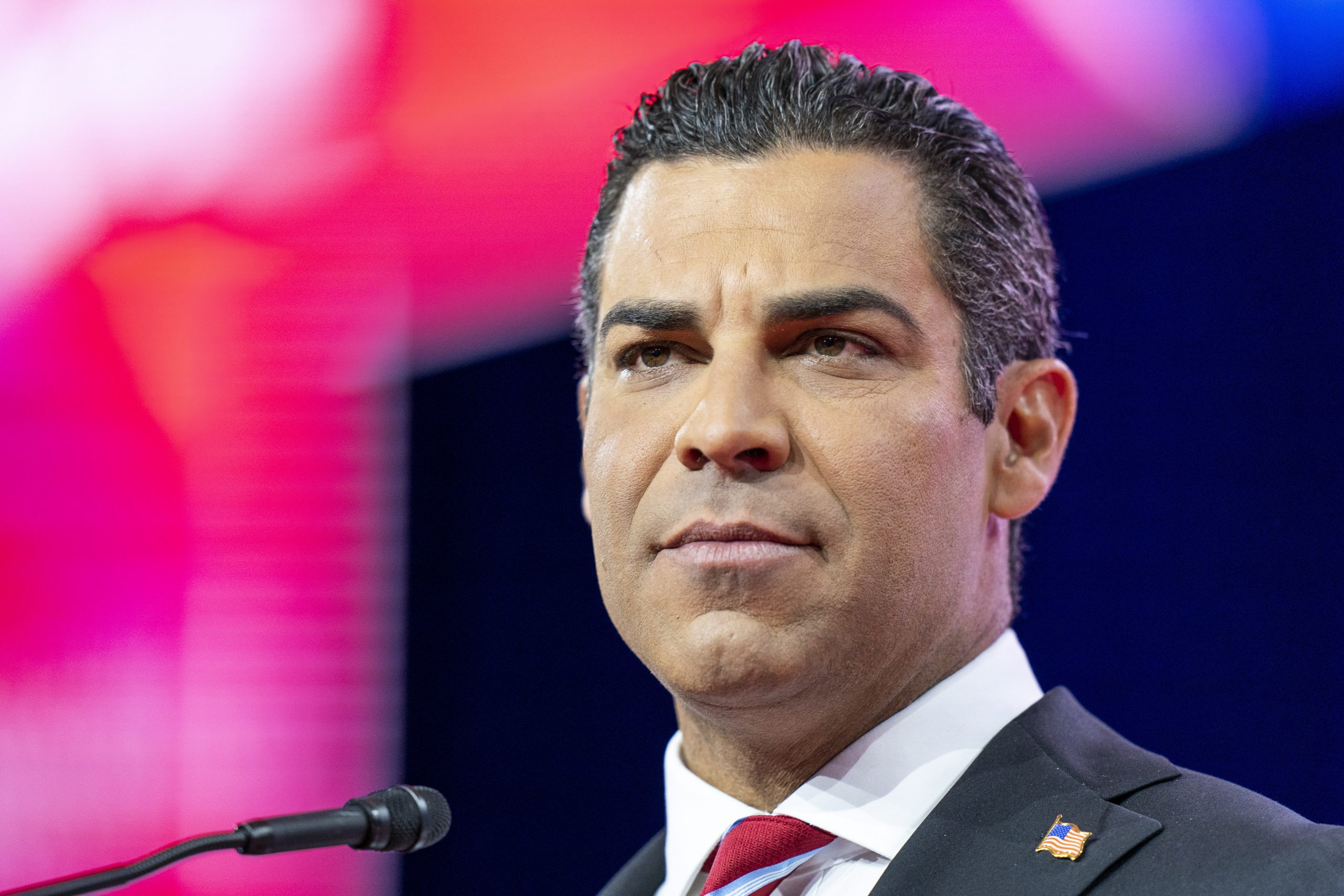
While two-term Miami Mayor Francis Suarez announced on Friday that he had met the debate qualifications, senior advisers with the RNC confirmed on Monday he will not be on the stage.
“I am so excited to be able to deliver my message of prosperity to the entire nation, to introduce myself to the nation,” Suarez said in his video announcement on X. “This is the beginning of an incredible moment for our country and for our city.”
Suarez has raised $1 million in the first days of entering the GOP race in June. He announced on July 28 that he met the 20-state fundraising benchmark but hasn’t met the polling requirements, saying he’s “one step closer to next month’s debate.”
CLICK HERE TO READ MORE FROM THE WASHINGTON EXAMINER
Perry Johnson
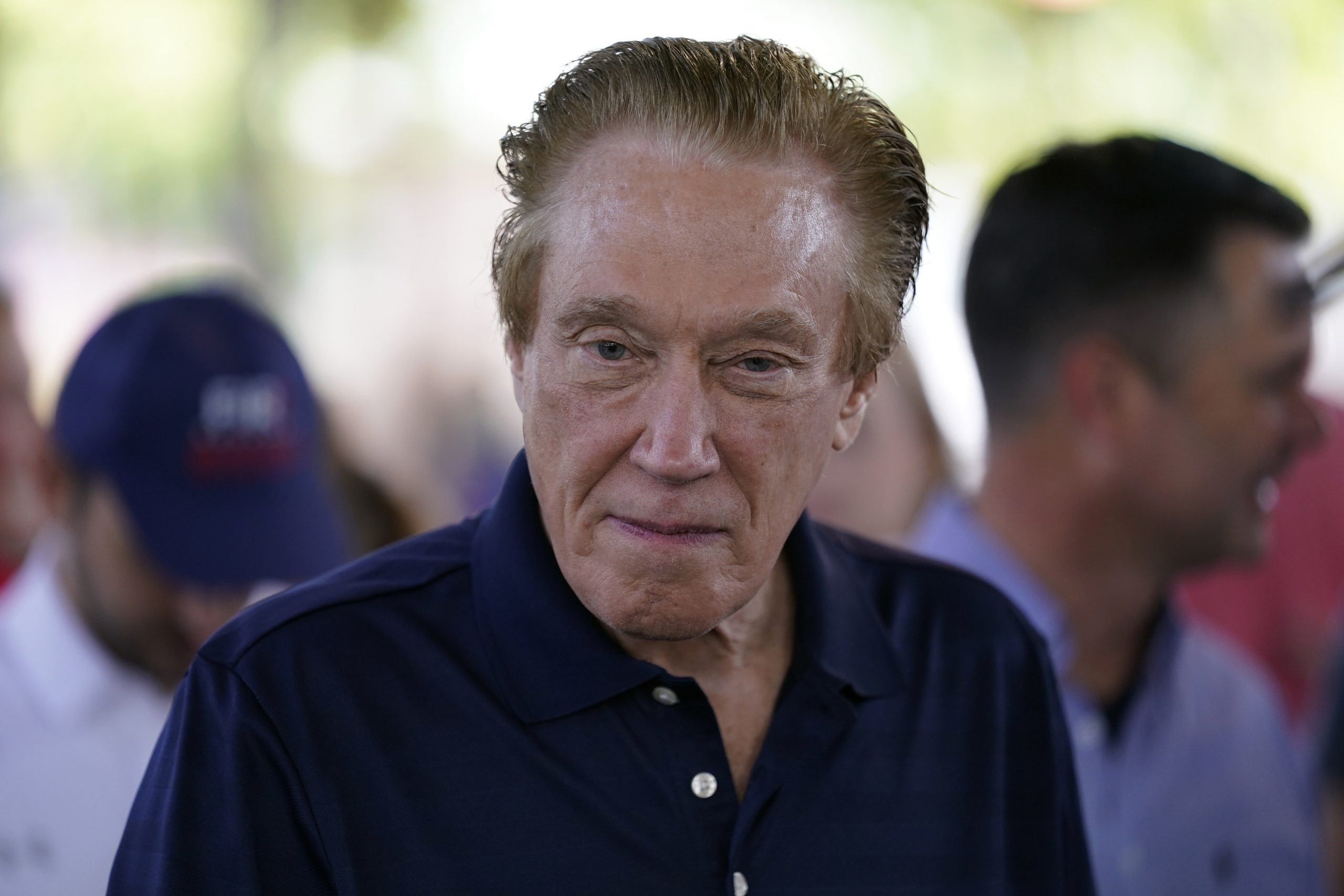
Michigan businessman Perry Johnson, like Suarez, has said he’ll make the debate stage but was not on the final list from the RNC.
Johnson announced earlier this month that he met the donor threshold, writing on X, “Today, in New Hampshire, I announced we reached the 40,000 donors needed to make the RNC debate stage.”
Multiple national polls recently placed Johnson at the needed polling marks, registering at 1% in a new national poll from Victory Insights. He polled 1.8% in a New Hampshire Trafalgar Group poll and a national Trafalgar poll released found Johnson at 1.1%.

